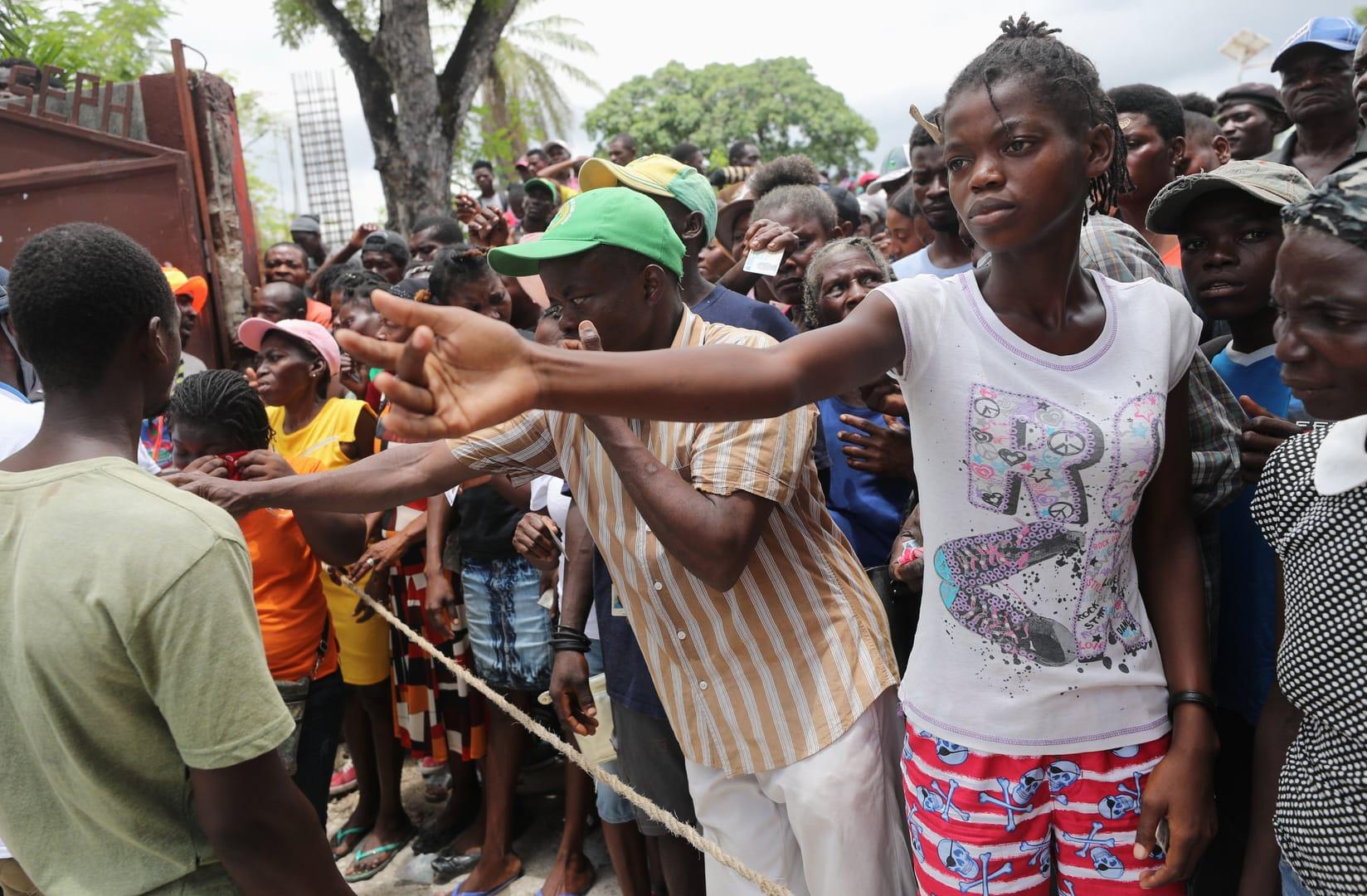ROME – As Haiti continues to reel from the aftermath of last month’s massive earthquake and the fallout of an ongoing political crisis, compounded by decades of rampant poverty, the country’s top prelate has asked the international community for help in getting his people back on their feet.
In the face of Haiti’s many woes, “thousands and thousands are trying to get out,” said Haitian Cardinal Chibly Langlois of Les Cayes. He asked for international assistance and help from NGOs, saying, “we must help people to hope again, to see hope and move forward with hope.”
Langlois spoke during a Sept. 21 press conference organized by Catholic charity organization Caritas International to draw attention to the many needs facing Haiti, and to elicit support following the Aug. 14 7.2-magnitude earthquake that rocked the country’s southwestern region.
More than 2,200 people were killed in the quake, aftershocks of which can still be felt, and some 12,000 more were injured, while countless others were left homeless, or without livelihoods. In all, an estimated 1.5 million people have been impacted by the quake in some way.
The earthquake rattled a country still reeling from a 7.0 quake that left over 100,000 people dead in 2010, and from the murder of President Jovenel Moise in July.
Thousands of families in the quake zone are largely dependent on the Catholic Church and NGOs to help them get by.
Some 200,000 children are expected to lose a year of education as a result of the quake, as many of the school buildings that were damaged or destroyed will not be rebuilt in time for the start of the fall term in two weeks.
Bruno Maes, head of the United Nations’ Children’s Fund (UNICEF) in Haiti, said that “Thirty-nine million dollars are needed for emergency humanitarian and education aid — barely five million has been allocated.”
The European Union has made available three million euros ($3.5 million) in emergency aid, but EU officials have asked the Haitian government for guarantees for certain democratic reforms before further aid is given.
In remarks during Tuesday’s press conference, Aloysius John, Secretary General of Caritas Internationalis, called the situation in Haiti a “forgotten crisis,” with much of the world’s attention focused on other things, such as the COVID-19 pandemic and vaccine debates.
“We cannot turn a blind eye to Haiti, people are suffering in Haiti,” John said, adding, “poor Haitians need aid, and deserve the best we can provide so we can give them a sign of hope.”
Father Jean Herve François, National Director of Caritas Haiti, highlighted the main needs for Haitians, most of which involve rebuilding homes and schools.
Now, there are around 100,000 families without housing as a result of the earthquake, François said, adding, “we can see the misery, the poverty, there is famine in the streets.”
“Local people did not have that much in terms of nutrition, and at present they don’t have the means necessary to construct their homes and access to food,” he said, noting that the country’s social infrastructure is practically non-existent.
In southern Haiti, where the earthquake struck, the Church has tried to meet basic needs, “but we’re not able to do everything,” François said, noting that the next step for Caritas is to make an evaluation of rebuilding needs and priorities, to restore farmland destroyed or damaged by the earthquake, and to offer support for those who are still traumatized by it.
Langlois in his remarks noted that some 60 percent of Haitians are suffering from some sort of poverty, and with the government in disarray, the Church “is the first responder,” and is one of the only entities present in remote areas that are difficult to reach.
“The church tries to stay side by side with the poorest of the poor…there is no single place where you can say there is no poverty,” he said, noting that new forms of poverty have sprung up as a result of the pandemic and last month’s earthquake.
“But the Church also suffers because we too are victims of these natural disasters,” and even violence, Langlois said, noting that priests, religious, and laypeople have all been targeted in violent crimes.
He issued an appeal to all international state and ecclesial NGOs and institutions to “come to our assistance, to emerge from this catastrophic situation we are living in Haiti.”
It is important for families to have a roof over their heads once again, he said, “so they can get back to work and rebuild the economy, rebuild the country, and rebuild their future.”
Follow Elise Ann Allen on Twitter: @eliseannallen














